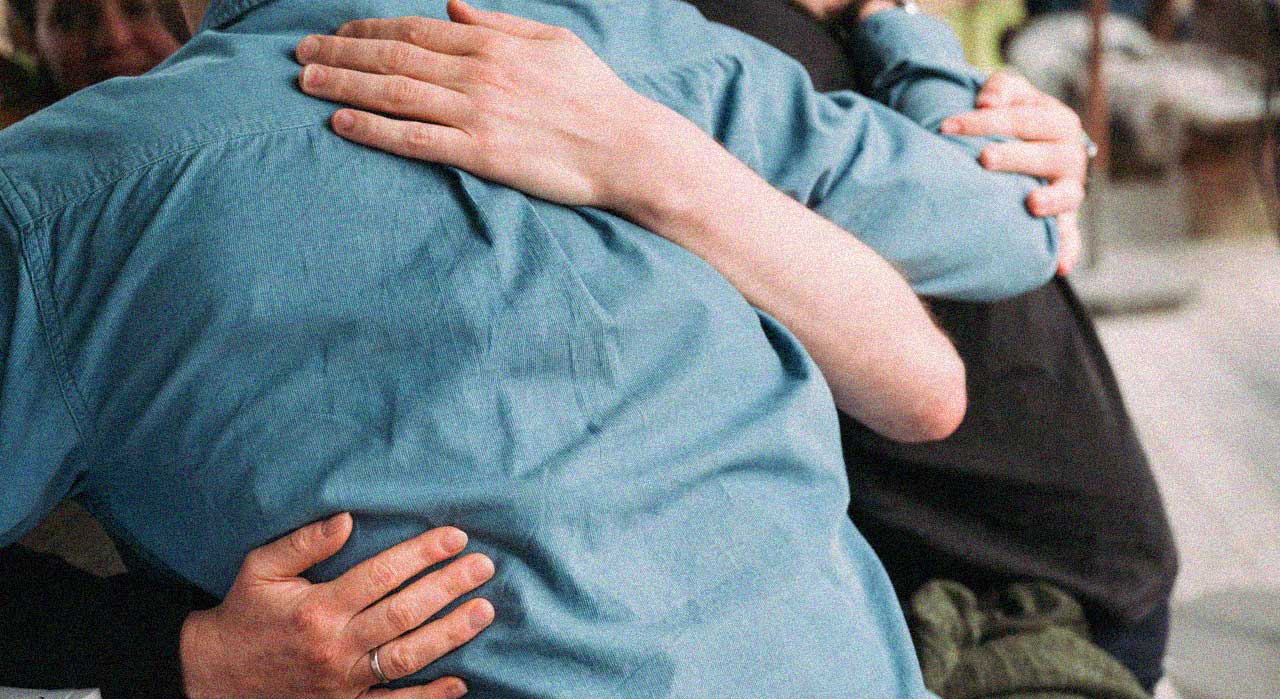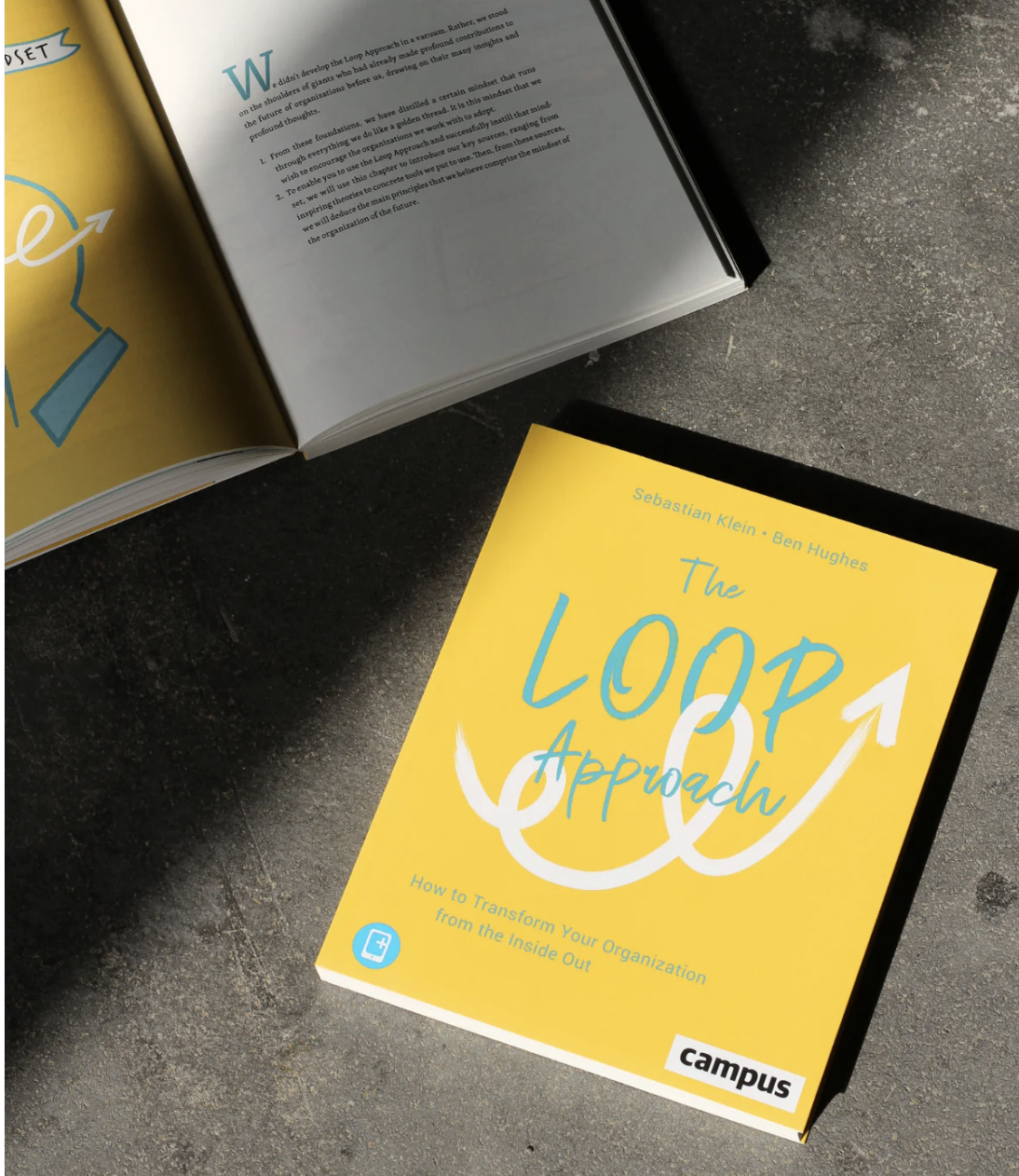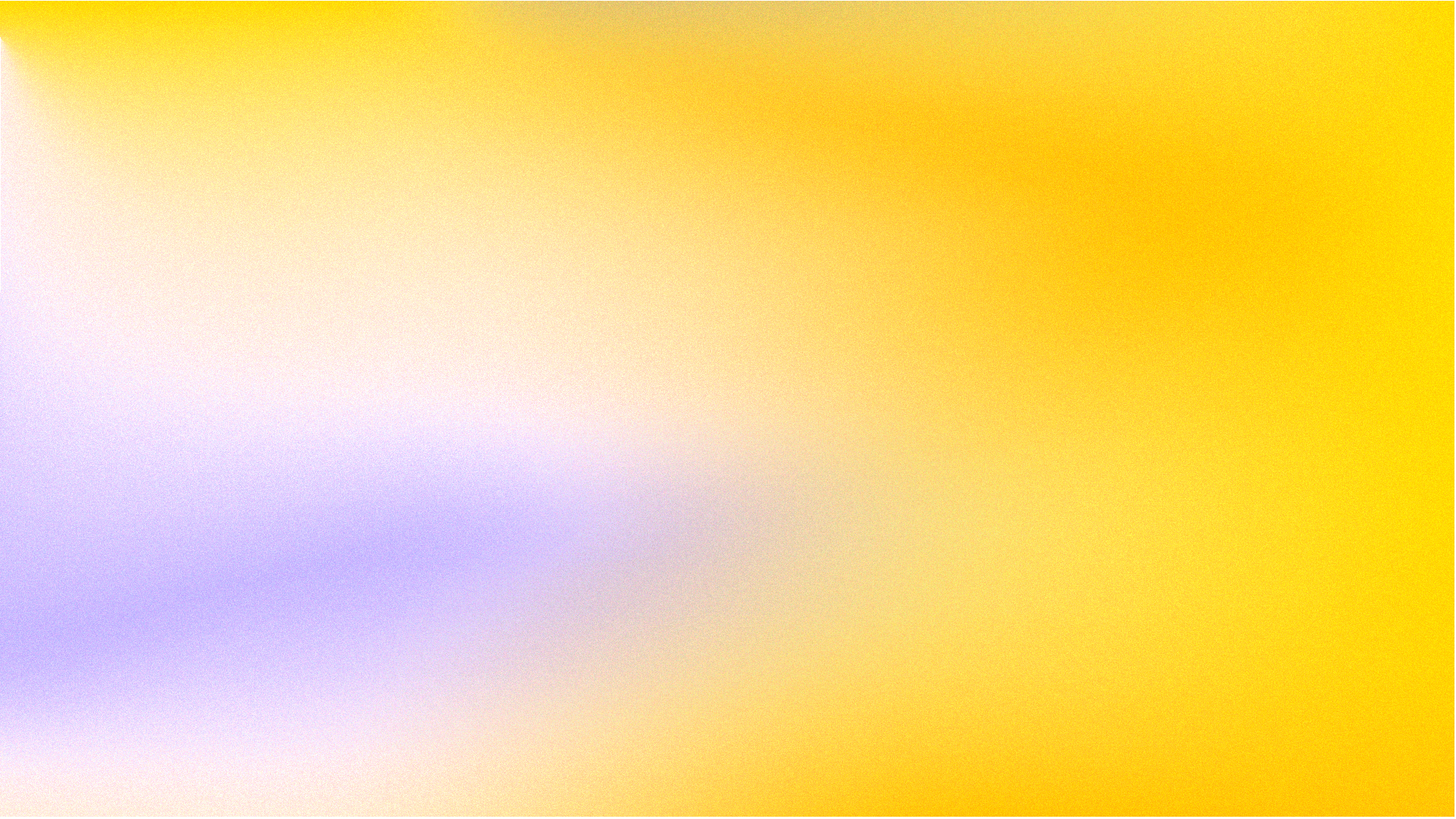
The Loop Approach® is a transformation process that helps teams work together effectively. It didn’t emerge out of nowhere; we developed it based on many insightful ideas, theories, and practices that inspire us in our daily work and on which we rely.
The tools and methods may vary widely in appearance, yet they often reflect a very similar mindset. Ultimately, this mindset, this attitude, is what defines the organization of the future for us. In the end, our goal is to bring specific principles into an organization that shape the way people think and act.
The organization of the future relies on autonomy and self-organization. Each team and every individual within a team is empowered to act independently and make decisions. This makes an organization agile in the sense of being quickly adaptable and responsive. An organization can only act swiftly at the periphery when autonomous teams and individuals are in place, able to organize themselves without first needing approval from committees and steering bodies.
More and more companies are focusing on their purpose. It’s about a deeper sense of meaning and a common foundation that everyone in the organization not only understands but also emotionally connects with. Purpose is the overarching common denominator: it fosters identification and allows for navigation through high uncertainty. In times of increased complexity and rapid change, it provides a fundamental stability that goals and strategies alone cannot offer.
Perhaps the most important message of The Loop Approach® is this: You are the transformation. Each person can start making small changes within their own sphere of influence. This should also be reflected in the language we use: “I need...,” “I feel...,” “I see it this way…” The organization of the future gives its members the freedom to start with themselves, to take full responsibility for their own actions, and thus to serve as a role model for others. None of us can do more than this, and more is not necessary.
Problem-oriented thinking has a long tradition in the power dynamics of traditional organizations: those who find problems—ideally with a colleague they’re competing against—tend to succeed. In the organization of the future, this approach is different. While identifying problems and weaknesses remains important, simply pointing them out is no longer sufficient. Instead, solution-oriented thinking is required: “I observe the following problem: ..., and I propose the following solution.” Shifting to solution-oriented thinking is a change in mindset, but essentially just an extension of problem-oriented thinking. Those who master the latter can learn the former.
Where it was often about either-or in the past, it’s now increasingly important to think in terms of both-and. To succeed in complex environments, one must cooperate and aim for win-win solutions. Organizations designed more like networks and less like collections of silos only work if shared success is the goal—and this includes external partners.

Transparency and open communication are increasingly replacing secrecy and opacity. All practices and schools in the world of new work rely on radical openness. In complex systems, it is often unpredictable which information will be helpful and where, so the only way to manage this is to make information as widely accessible as possible.
This attitude is particularly visible in movements like Design Thinking, but also in Holacracy with its continuous governance process and the constant question of "Is it safe enough to try?"—both aim in the same direction: In a complex world, it’s about continuous progress and constant experimentation.
People should be able to show up at work as the full extent of their personality. They are no longer defined solely by the role or position they hold, but also exist as a human being. This distinction allows for a rethinking of responsibility in the organization of the future: In addition to myself as a person, there is me as the bearer of a role. And I can hold not just one role, but many different ones. In the past, the boss was simply the boss, but today, any employee can take on one role here and another there—and still be present as a person.
Where in the pyramid the egos mainly compete, in the future it will increasingly be about personal development "from Ego to Self." In such an organization, employees do not compete to see who is the best or gets the biggest piece of the pie; instead, they dedicate themselves to a greater cause. And with humility, they focus on the greater challenge of understanding themselves better as human beings.
Every person who works within an organization is a kind of sensor. Each of us constantly perceives tensions and notices that something could be different from how it currently is. Tensions are initially just feelings, but they can be translated into concrete problems, ideas, and questions. Although the word "tensions" has a rather negative connotation in German, we view them as something positive: as a driving force for change, as the fuel for the organization. However, to harness this potential, effective methods are needed: only then can tensions be made visible, addressed, and translated into meaningful changes.
In the organization of the future, everyone can lead—not just themselves, but also others. This happens through the respective roles. Where I am an expert, I lead others by taking responsibility and making decisions. The idea that anyone can lead depending on the situation and the topic makes the world of organizations more complex, but also much more effective. In our current world, we need experts who possess local knowledge and can make quick decisions in their area of expertise. In constantly changing environments, no all-powerful manager can achieve this across multiple areas.
Effective organizations are primarily one thing: a collection of strong, action-oriented teams. Anyone who wants to make an organization future-proof must strengthen the teams that make it up. Only when they are able to solve all the problems they encounter on their own can the vision of a decentralized organization become a reality.
At TheDive, we constantly create new things.
Stay up to date with our newsletter!
At TheDive, we constantly create new things.
Stay up to date with our newsletter!



